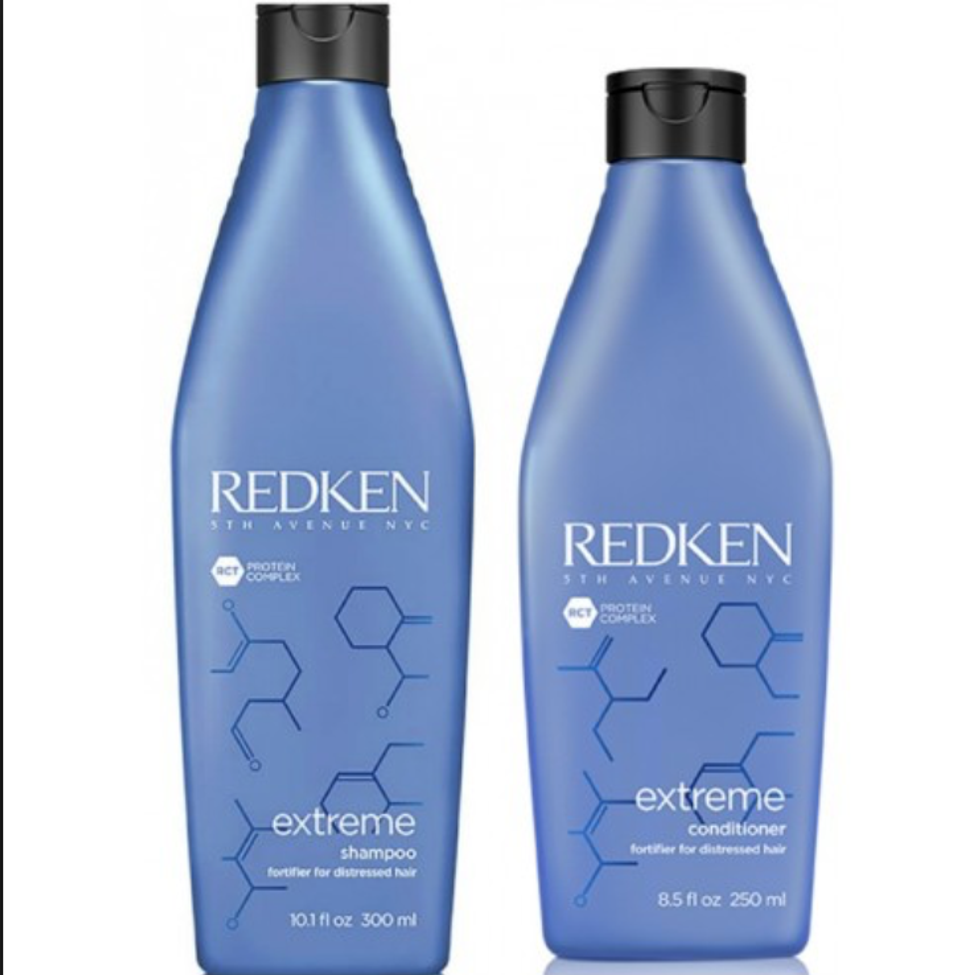A few months ago, I decided to take the plunge and chop off nearly 7 inches of my hair. It wasn't my first time going for a short style, as I donated 8 inches during my junior year of high school. When I did it then, I was in love with my short hairstyle.
I became weary of my haircare routine when I noticed that about four months after the big chop, there was virtually no difference in the length of my hair. The only thing that changed was the insane amount of split ends I had. The breakage had gotten so severe that it looked like I hadn't had a haircut in years.
As I tried to figure out the culprit of my damaged locks, I alternated between products for a few weeks at a time to try and find a consistent result. I used all types of heat-protection products, leave-in conditioner, and oils from A-Z. At one point, I ditched using hot tools completely for a week, and I refused to put my hair up in a ponytail or bun out of fear of causing more damage. Although my hair was being spoiled by all of the additional treatments, I'm a pretty impatient person and I was eager to return to my lengthy, healthy hair.
In a casual conversation one day with my friends, I had mentioned how unhappy I was with my hair in terms of length and strength. They all were shocked when I told them that I was using Pantene, and suggested that I steer clear of sulfate-shampoo with having thick, curly, and coarse hair. I did some more research and I became super intrigued that just one ingredient in my shampoo could be holding me back from my own Rapunzel-esque hair.
So what exactly are sulfates? Good question. They're aggressive cleansers that are able to effectively cut through and eliminate oil and dirt commonly found in hair and skin. Sulfates are the main ingredient that develops the sudsy-clean foam while working products on your skin or in your hair. While digging deeper into the concept of this crucial beauty staple, I also discovered that there are different variations of them used in products as well.
The most common type of sulfate found in shampoo is called "sodium lauryl sulfate" or "sodium lauryl sulfate," and are commonly abbreviated as SLS. Aside from beauty products, sulfates are common detergents found within household items such as laundry detergent, dish soap, and more.
It's important to point out that sulfates are still perfectly fine to use, but for some (like myself) they cleanse to a point where it is detrimental to healthy hair growth and strength. Redkin sums it up perfectly on their website by saying,
"Shampoos containing sulfate can be a bit too good at doing their job. While theses shampoos wash away dirt and grime, they may also wash away important stuff our scalp creates and needs, leading to a loss of moisture. Thus, sulfate-free products are considered milder, less drying and less frothy alternatives to their sulfate-containing counterparts."
I've found that while using Pantene's collection, which was a sulfate-based cleanser, I was very happy with how my hair felt after the shower. It was soft, silky, and it seemed to be healthy. However, I didn't realize that too much of my natural oils were being stripped from my scalp, resulting in poor conditions for growing hair quickly and more efficiently.
I recently purchased the Redkin "Extreme" Shampoo and Conditioner, which both aim to fortify weak hair while restoring natural strength and shine. If I'm being honest, I chose to test out this brand and formula because it was on sale while I was in the store. I also was considering Living Proof and Organix brands, since I have only heard very positive things about them. As for my choice, it comes in a periwinkle bottle as pictured below, and is sold at most beauty retailers. (I got mine at Ulta.)

While it hasn't been long enough to determine a difference in my length yet, I'm excited to see if the new formula gives my hair the boost I've been looking for! Make sure to always combine good cleansers with protective and rejuvenating hair products, such as heat-protectants and serums or leave-in conditioner treatments, for the best possible outcome.
If you believe you'd benefit from making the switch to sulfate-free and need some suggestions, check out this list from Allure!



















